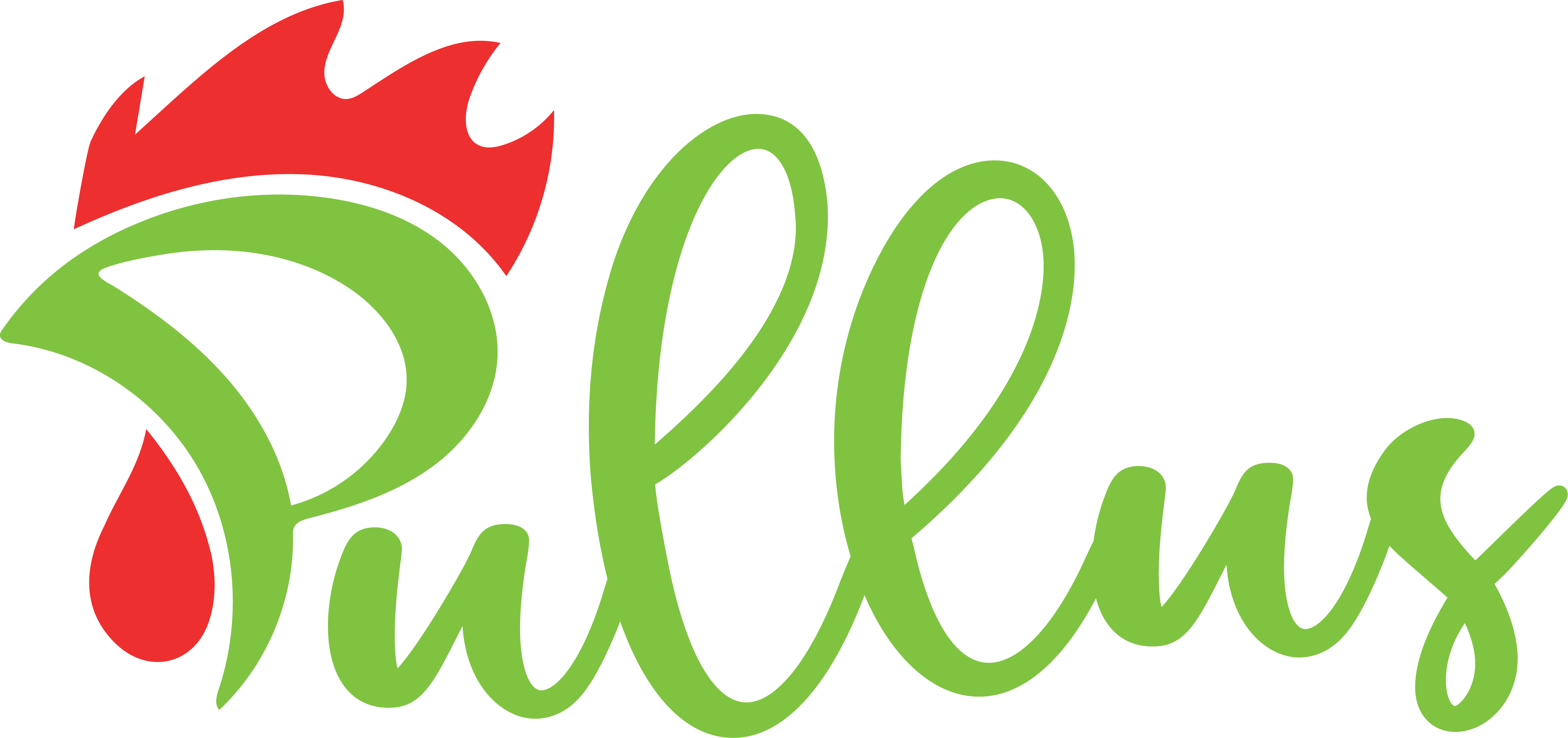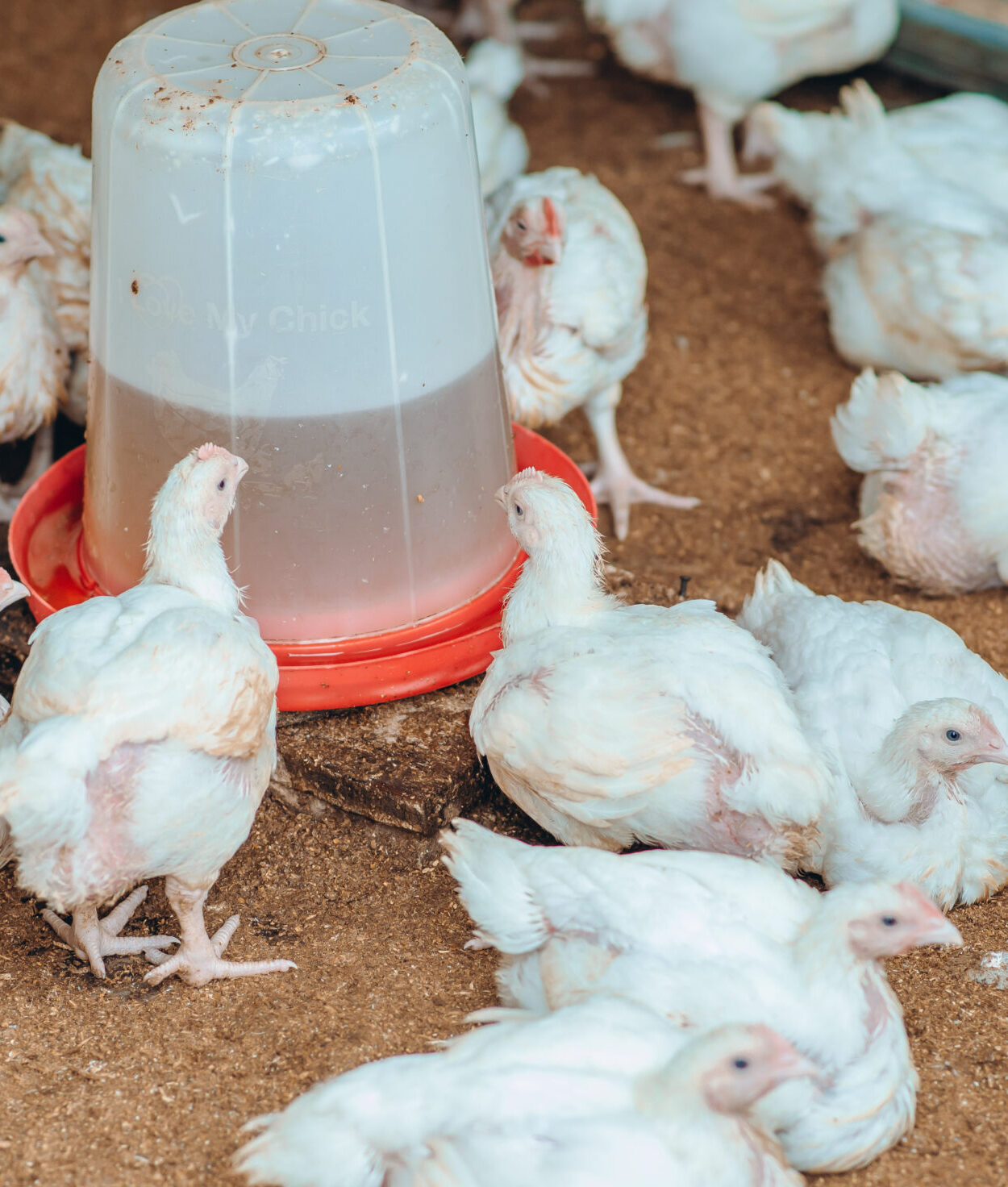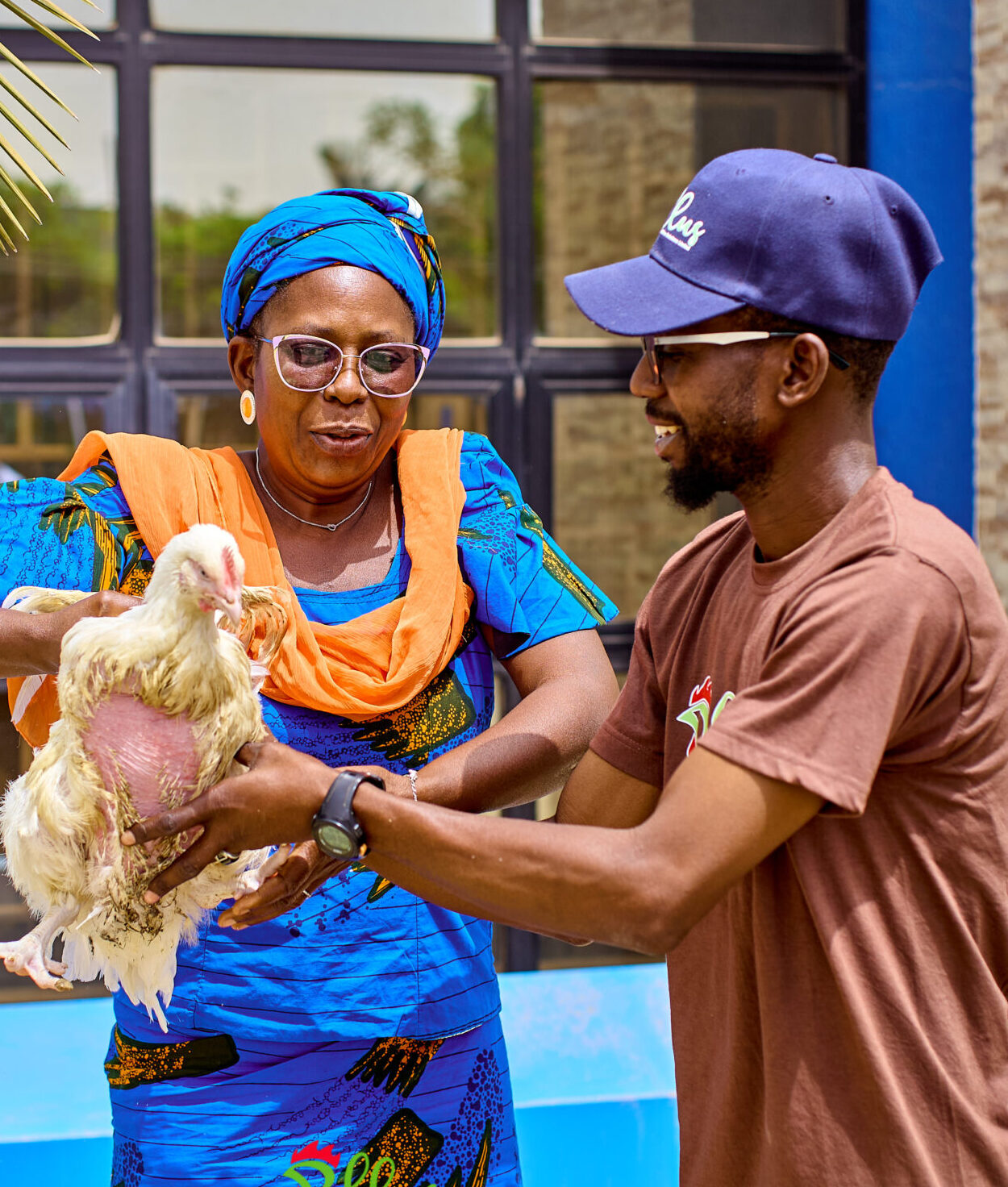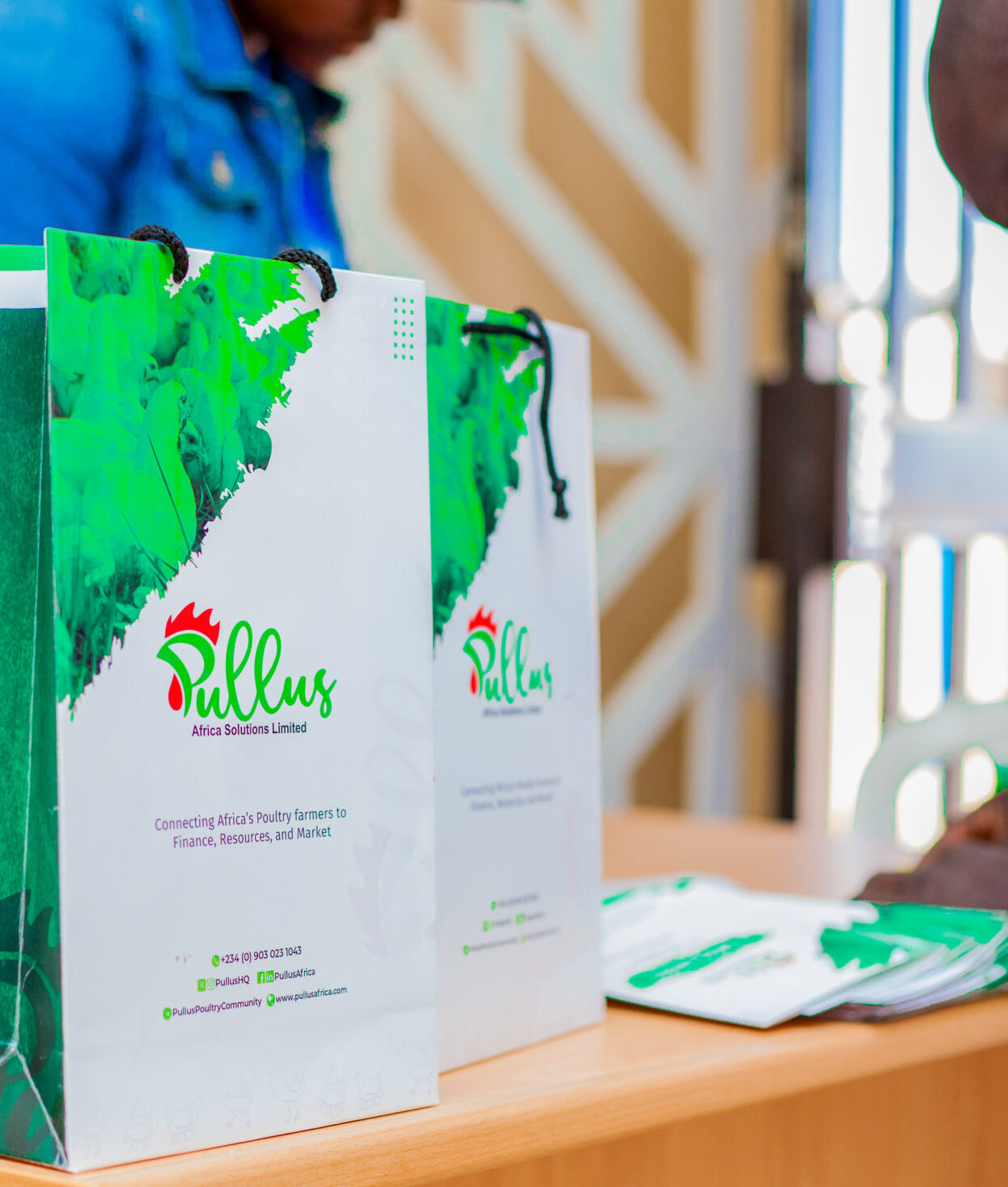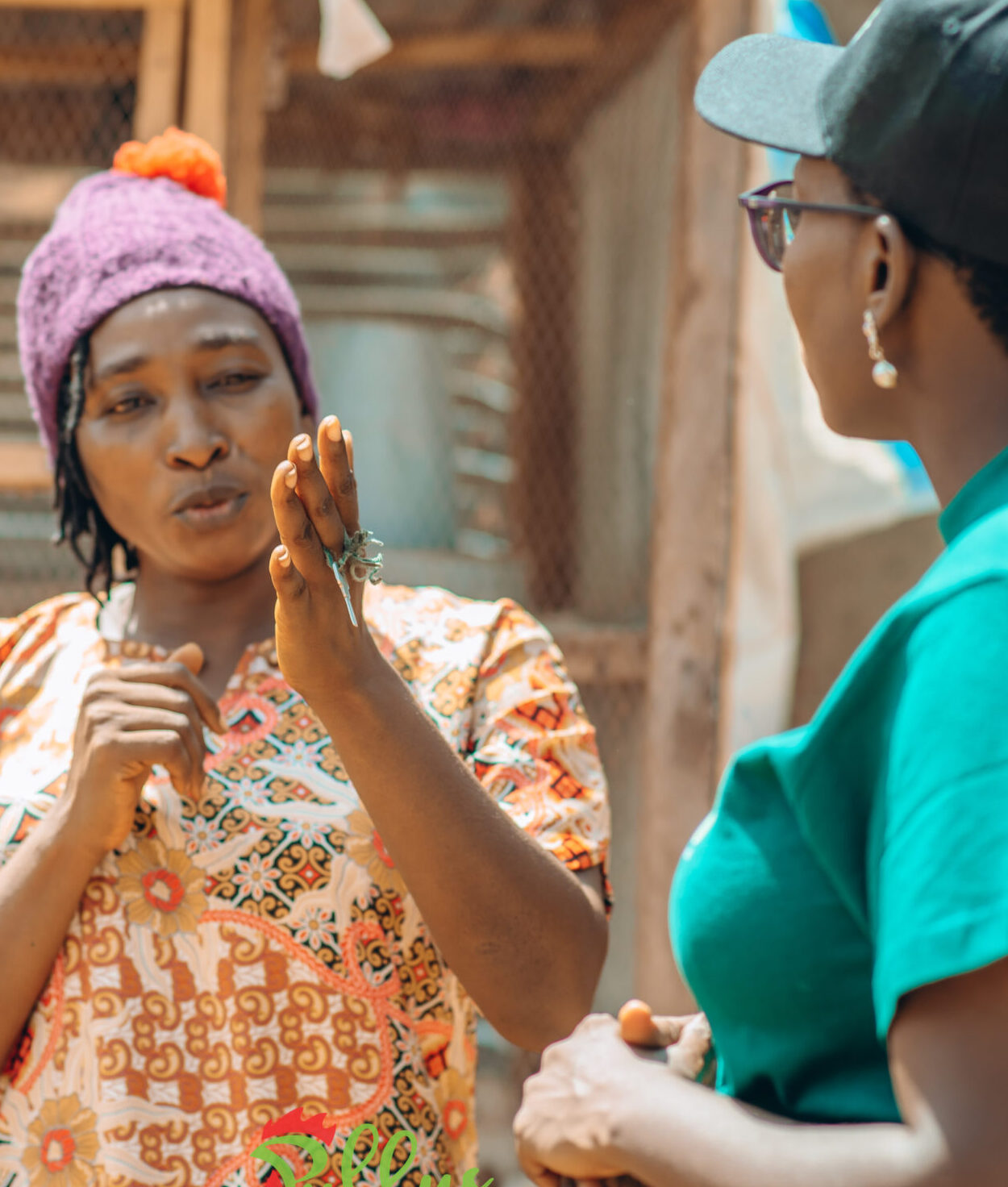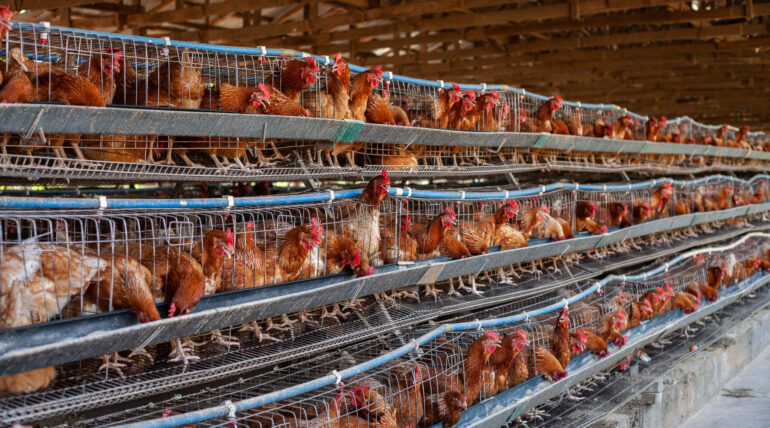
Every Nigerian clamor to have their rightful share of the \”national cake.\” For the first time, we think the national cake went round; we were all served— not one business or person was spared the negative consequences of the pandemic. What can be said of the poultry industry 2 years after COVID?
The poultry industry is worth $4.2 billion and makes up 9-10% of the nation\’s GDP. It\’s a source of protein for 200+ million Nigerians. Any government shouldn\’t sideline it. This piece recounts the devastating situation poultry farms were faced with during the pandemic and the current realities after COVID-19. We will understand these changes by studying the existing challenges, cost of input, number of actors, chicken consumption, and the industry\’s value.
Effect on poultry farmers during the pandemic.
The announcement of a lockdown by the government was the beginning of the decline poultry farmers experienced during the pandemic. To curb the spread of the virus, the government banned interstate movements. Neither goods, people, nor services could exchange hands within the state or interstate. Major institutions patronizing poultry farms were shut down, and small buyers couldn\’t access the farm. Even if a customer successfully ordered large units of these products, there was no way to deliver them.
Farms were not left out of the consequences of the lockdown. It was difficult and impossible to access essential inputs like feed, vaccines, and day-old chickens. Staff couldn\’t make it to work, and laying off staff to keep their heads above water became non-negotiable.
A farmer recounts losing 200 of 800 birds in the brooding section because of a viral infection. Another farmer was struggling to sell off 10,000 crates of eggs. Other farmers reported wastage resulting from rotten eggs. Eggs are very perishable, and the inability to sell them off in good time results in spoilage. Some farmers embraced the lesser evil—drastically reducing the prices to as low as N500 per crate to get rid of their products.
The poultry industry in Nigeria consists of small and large scale farm holders, with small-scale farmers representing 65-77% of the total number of poultry farmers. A report surveying the effect of the pandemic fifteen months later on 525 smallholder poultry farms in five states of Nigeria showed a 28.3% increase in the number of farmers living below the international poverty standard of $1.9/day. Daily trust Abuja reported that 350,000 farmers had been forced out of business in Ogun state, Nigeria.
Large-scale poultry farmers may not quickly fall below the property standard, but they lost a great deal during the pandemic. They had more at stake because of the large investment they put into agriculture. A whopping $9 billion post-production harvest of fresh produce (including eggs) was lost in 2020.
Running a farm with little to zero staff strength and these existing challenges is not only impossible but mentally draining. The cost of inputs further complicated the plight of poultry farmers. Especially inputs that were imported or had their price hinged on the foreign exchange (dollar-naira) evaluation. The costs of vaccines, feed, and other imported inputs spiked.
The effect on poultry post-covid.
Two years after the pandemic, not much has changed for poultry farms. We barely escaped the pandemic, only to find ourselves in a pool of economic misfortune. The surge in the overall prices of goods and services in Nigeria and the devaluation of the naira has worsened the plight of farmers. Only this time, there\’s no lockdown, and poultries can conduct their business as they did before the pandemic.
The cost of poultry input
The general inflation of commodities in the economy has increased the price of inputs like feed by 168%. Before the pandemic, a 25kg bag of feed was as low as N3,800, N5,000 during the pandemic, and now between N8,500-N10,000 two years after.
The exchange rate has also increased the cost of inputs like vaccines or poultry equipment. As of today, a dollar is exchanged for N730. Overall the cost of production in poultry farms has spiked since after the pandemic because of inflation. The prices of by-products of poultry farms are enough proof of the high cost of production. For example, eggs have increased from N800 to N1800 two years after the pandemic, and broilers now sell between N5,500-N7,000 (sold for 3500-4500 in 2020).
Number of actors (poultry farmers)
The pandemic took many poultry farmers out of business, and the deplorable state of our economy is taking out even more farmers by the day. In a statement released one month ago, the All Farmers Association of Nigeria reported that over 60% of poultry farms had been closed down because of the cost of poultry feeds.
Consumption of chicken
During the pandemic, many low-income homes strike-out eggs as a necessity in their pantry. The same can be said for meat obtained from poultry birds—people are finding cheaper alternatives even if they aren\’t as healthy as eggs/chicken meat. Currently, consumption per capita is less than 2kg of chicken and 55 eggs.
Inflation accounts for a surge in the prices of all products and services except Nigerians\’ salaries. People receive the same wages before inflation and have been forced to reduce their standard of living. This explains why many poultries are closing down; there\’s no assurance that people will patronize them, given the surge in prices of poultry by-products.
Challenges
Underlying the high feed cost for poultry birds are other challenges poultry farmers face. The inflation facing the country has increased the cost of energy and, by extension, the cost of transporting agricultural produce Intra/interstate.
Also, the food inflation has made maize and soya beans short in supply. This is also caused by the security attack and threats that have made many farmers desert their farmlands for fear of bandits. The government hasn\’t made the plight of poultry farmers any better; aside from being indebted, there are no support programs or credit facilities to reduce the pressure poultry farmers face.
Would the Nigerian poultry industry survive?
As food demand rises and the preference for healthy meat increases, it is tipped to favour supply. The path ahead is rough, but tough and financially robust actors will survive despite the odds. Pullus Africa is changing the narrative in the poultry industry by leveraging on technology to boost local production and improve supply-chain linkages by connecting farmers to direct market, credible inputs, insurance services and credits. Be the first to take advantage of our solution today. Sign up on the waiting list now.
